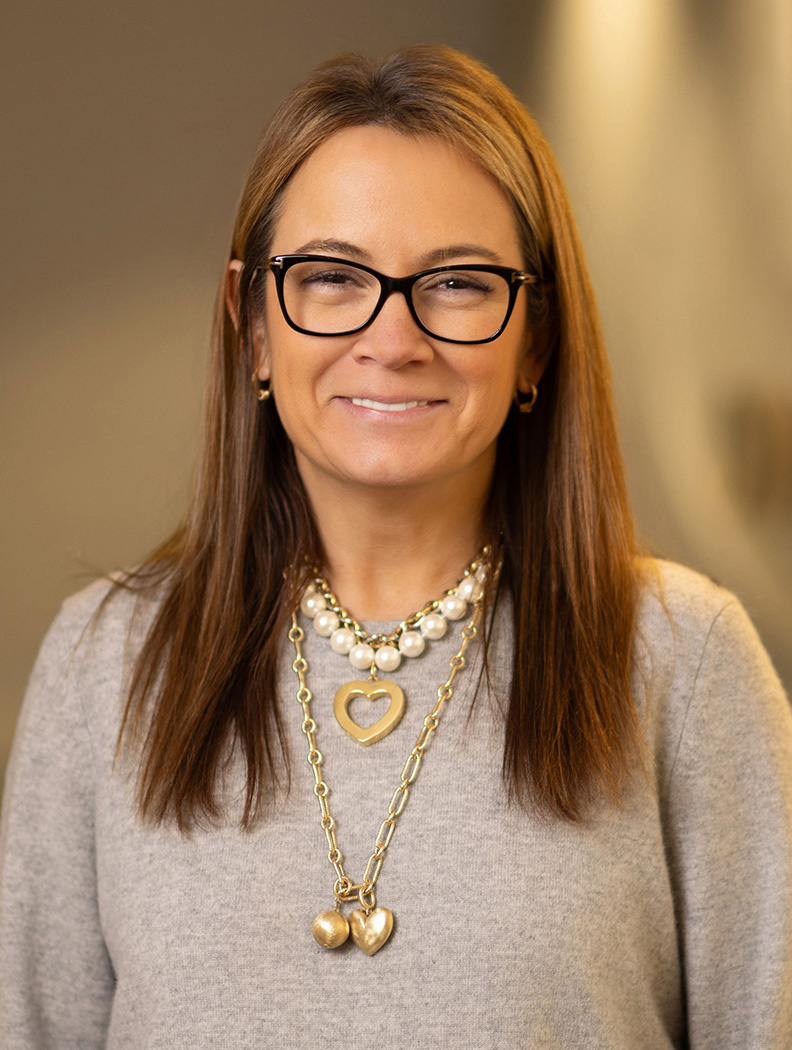Counseling
CancerCare’s oncology social workers can provide support and resources for people who have experienced the loss of a loved one.
Please call us at 800-813-4673.
Support Groups
Connect with others in our free support groups led by oncology social workers.
Online
- Healing Hearts Bereavement Camp Support Group
- Healing With Words — A Therapeutic Writing Group for GriefNew
- Loss of a Parent Support Group
- Loss of an Adult ChildNew
- Spouse/Partner’s Bereavement Support Group
- Young Adults Who Have Lost a Loved One Support Group
- Young and Middle Adult Loss of a Spouse/Partner
Live
- Living With Loss: General Bereavement Support Group (New York, Video)
- Living With Loss: Spouse and Partner Bereavement Support Group (New Jersey, Video)
- Living With Loss: Young Adult Loss of a Parent Support Group (New York, Video)
Publications
Read or order our free Connect booklets and fact sheets offering easy-to-read information about the latest cancer treatments, managing side effects and coping with cancer.
For Any Cancer Diagnosis
- Anticipatory Grief: Preparing for a Loved One's End of Life
- Coping With the Loss of a Parent With Cancer as a Young Adult
- Coping With the Loss of Your Partner or Spouse
- Counseling to Better Cope With Grief and Loss
- Grief and Healing: Coping With the Loss of a Loved One
- Helping Children Prepare for the Loss of a Loved One
- Helping Children Who Have Lost a Loved One
- Helping Teenagers Who Have Lost a Parent
- Helping Yourself Cope With the Loss of a Parent
- How to Help Someone Who Is Grieving
- Living With Grief: How Can You Help Yourself?
Ask CancerCare
Every month, featured experts answer your questions about coping with cancer including specific answers to questions asked by caregivers.
For Any Cancer Diagnosis
- Q.
My co-worker and friend recently lost her husband of 23 years to prostate cancer. I want to be there for her, but I'm not sure how best support her. Could you give advice on what I might say or can do?
A.It can sometimes be difficult to know what to say and/or what to do for someone who has experienced a loss. Feeling uncertain in terms of what to do and/or say is however common and normal. Death is not an event or human experience that can be “fixed” or “made better”. And, the struggle of loss and grief can certainly bring up feelings and experiences that we may have encountered as well.
Although we may find ourselves not knowing what to say to someone who has experienced a loss, there are ways in which we can offer support. An important way in which we can provide support to someone who is grieving is to offer what I suggest is the “gift of presence”. Simply letting your friend know that you are there to listen to her story and embrace her can be extremely supportive and healing. Remember that the grief experience is a process and everyone will grieve and heal in their own way and in their own time. This means that the support you offer your friend may change with the flow and movement of her grief and healing process. Grief and healing are interconnected and can often be experienced simultaneously. You may have to let your friend know therefore that the vicissitudes and range of emotions that may be experienced at times, although disconcerting, are normal. Allowing the process to be what it is, listening to your friend’s story, giving her a safe space, and offering validation of her grief will convey the message to your friend that you are “present” to her and care. Helping your friend find a support group can also be very helpful in connecting her to other people who are experiencing similar feelings and struggles.
You may want to read CancerCare’s fact sheet, How to Help Someone Who Is Grieving which may offer further suggestions and tips on how you may be of support to your friend.
- Q.
I am a 20-year-old college student and I recently lost two grandparents to cancer. I was close to both and am having trouble dealing with guilt and regret for not being there when they died or spending more time with them. What can I do?
A.I suggest seeing if your school has a counseling center. You mentioned that you are having trouble dealing with the guilt, which is understandable, with two significant losses. That can overwhelm your capacity to cope and make sense of what happened, let alone arrive at a meaning that you can live with. Struggling with that by yourself can increase your sense of powerlessness and isolation.
Guilt and regret are not unusual. And you may have a valid reason for feeling those emotions. My hope is that in working with a counselor, over time you can rediscover other aspects of your relationships with your grandparents that are being overshadowed by the immediacy of the loss, and incorporate those into a comforting narrative that integrates both the loss and the closeness of your relationship with each of them, and the ongoing meaning they, and those relationships, continue to have even in the present.
Thoughts of what you could have or should have done are evidence that you are having a hard time accepting the losses. It’s a little bit like magical thinking, in reverse. If you had only done that one thing, the outcome would have been different, and you wouldn’t be feeling this way. This is normal, and should decrease as you adjust to the new reality. Talking about it with someone who understands can facilitate that adjustment.
We offer bereavement support groups, both in-person in our New York City offices, and online. You might also contact your school’s health and wellness center to see if they have any information on local young adult bereavement support groups.
- Q.
My older sister recently died and my friends have urged me to join a support group to help me deal with her death. I'm not quite sure how to go about doing this - could you help direct me?
A.Often, when we are grieving the loss of a loved one, we may find ourselves questioning whether or not our feelings are normal. We may discover ourselves asking, “are there other people out there who are like me and experiencing similar feelings as I am”? Bereavement support groups can be exceedingly helpful in lessening feelings of isolation and aloneness. Not only do these support groups help us cope with the loss we are experiencing, but they offer fertile ground for camaraderie and support. Support groups provide us a safe space where we can share our story with others, grieve, and begin the road to healing.
Grief is a journey. Although everyone in a bereavement support group is brought together by the commonality of a loss, it simultaneously is important to remember that everyone copes with loss differently. In a support group not only will you be able to listen to the ways in which other people cope with a loss but you may also learn and develop new strategies for coping with your loss as well.
Many times people who engage in bereavement support groups frequently feel like “family”. This is a common experience as group members in sharing stories and feelings create lasting and powerful bonds with each other. Participants in support groups validate our experience and emotions. They reinforce our strengths when we may experience intense feelings such as sadness, anger or confusion. Group members support us as we remember our loved one and go through holidays, anniversaries, birthdays and other significant milestones.
In closing let me mention that although bereavement support groups can certainly strengthen and foster our capacity to cope with loss, it is important to keep in mind that support groups may not be for everyone. If this should be your experience, there is nothing wrong with you. Perhaps individual bereavement counseling would be more helpful to you during this period.
- Q.
My husband died about five months ago and I think I should be feeling better by now, but honestly, I feel worse. Is there something wrong with me?
A.Let me first begin by mentioning that there is nothing is “wrong” with you and what you are experiencing at the moment. This experience is normal and actually quite common. Many people with whom I have worked have indicated discovering themselves on an emotional roller coaster at times. People often believe that grief and the healing process manifests itself in a linear fashion. We assume that we simply move from one “stage” to another. The grief experience however is quite contrary to this perception. Remember that grief and healing is instead an evolving and dynamic process. Changes in how we feel physically, emotionally and spiritually are to be expected. There will be days in which you may feel good about yourself and life and conversely there will be days when you may feel everything around you has fallen apart. Our feelings and experiences are similar to the tides of the ocean; the tide flows in and the tide flows out. Keep in mind that everyone is different. People cope with loss and heal in their own way and in their own time.
Healing is not simply about picking up from where we left off as if nothing ever happened. Rather, it consists of an attempt to create legacy and keep the memory of our loved one alive. It is important to allow the process to be what it is and to allow yourself to be where you need to be. Try not to judge yourself nor be critical of your feelings and experience. Nurture your soul during this period and always reach out to those around you who are supportive and caring.
Engaging in individual bereavement counseling, participating in bereavement support groups and reading literature pertaining to loss, grief and healing can be exceedingly helpful in normalizing your experience and validating your feelings. It can also afford you a safe space to share your story so you may not feel so alone.
I would recommend reading these CancerCare fact sheets as they may be of benefit to you; Living with Grief: How Can You Help Yourself and Coping with the Loss of Your Partner or Spouse.
- Q.
My 42-year-old brother passed away this year and I was his caregiver. I am devastated and do not know how to cope this holiday season.
A.The holidays are a time for giving, so please give yourself the gift of acceptance – your grief is part of your healing process. It’s natural that remembering your brother at this time brings sadness and pain. Express your feelings and try not to isolate yourself from those who care about you.
Remembering your brother on special days is way to honor him. He can be there in spirit through a symbolic ritual such as lighting a candle at a family dinner or planting a tree on New Year’s Day. Do things that have a personal meaning to you and will foster positive memories of him.
Your feelings are a normal response to loss and you need to give yourself time to adjust to living in this world without him. Do what you feel up to doing during the holidays, but take care of yourself and let others know that you have limited energy, both emotionally and physically.
To learn more about grief, what to expect, and how to cope, please read:
CancerCare’s fact sheet, Living With Grief: How Can You Help Yourself
The National Cancer Institute’s Grief, Bereavement, and Coping With Loss
Finally, How To Go On Living When Some One you Love Dies, is an excellent book that is written by one of the foremost experts on grief, Therese A. Rando (Bantam Publishers).
- Q.
I lost my only daughter this past June—she was only 38 years old and left 3 young children. They do not live close to me. Our family’s big summer reunion is coming up in a few months and I don't know how I can be around everybody, at what is supposed to be a happy event, when I feel so sad. I am married, but my husband is going through his own grief. Suggestions?
A.Anniversaries are tough, and it’s not unusual for the looming date on the calendar to start to dominate a bereaved person’s thoughts and feelings. With seasonal events like holidays and family traditions, even just the weather and in this case the long days of summer, it can really feel like it is going to happen again – “it” being the diagnosis, the treatment, the loss, and the feelings that followed. Terrifying!
There’s also a tendency to feel like twelve months is the cutoff point in grieving. It’s been a whole year and you should be “getting over it” by now… In this context, still being sad can feel like failure or defective coping. But the real deal is that everyone has to grieve at their own speed. In working with people who have lost someone to cancer, I’ve begun to understand that the first 12 months are often just about facing the loss and the repercussions of the loss. The second 12 months are often focused on adjusting to the loss and trying to reintegrate oneself back into life without the loved one. There’s no way to rush your process, and no arbitrary point where you should be “back to normal.”
Given that you are still grieving, the upcoming reunion sounds scary and isolating. You mentioned that your husband is going through his own grief. Can you share your fears about the reunion with him? He may be experiencing something similar, in which case there’s the possibility of mutual support. I also suggest seeking out a trusted relative who will be at the event and sharing some of your fears about the reunion. Knowing that a couple of people understand that you are having a tough time, and are willing to support you in that can increase your sense of emotional safety. Regardless, I suggest taking the event at your own pace and building some flexibility into your schedule so that you can take a break if and when you need to.
You may read more in our fact sheet Grieving the Loss of an Adult Child.
- Q.
My daughter passed away from cancer about 6 months ago and I'm concerned about my two grandchildren, ages 7 and 4. Could you give me advice about how I might be able to help them?
A.As a parent who recently lost a child, it can be very difficult to deal with your own grief while also trying to support other family members, including children. How you support your grandchildren may vary depending on their age and how they are grieving.
Your grandchildren are most likely grieving differently than the adults in your family. You may find that they can be crying or sad one moment and then asking to play a few moments later. This is a normal reaction for children and can be helpful in their grieving. Especially with younger children, play is a way for them to express difficult thoughts or feelings that might not otherwise be shared.
You may also find the children continue to ask questions about their mother’s death or if she will be coming back. For children under the age of 7 it is difficult to understand that death is permanent, so they may continue to ask about it. While these questions can feel uncomfortable to answer, it is important to continue to address these questions in a concrete way. Saying that she is “asleep” or “passed away” may sound comforting to adults, but can easily confuse children.
Continue to love and support your grandchildren as you have been doing and take the time to listen to their questions and concerns. It is important for them to know that there are adults they can turn to.
Some families find it helpful to attend bereavement groups for children that have lost a loved one. These groups usually use play and creating art as a way to help children cope with their grief, while meeting other children who have also experienced the death of a loved one.
Here is an additional resources that may be helpful:
If you would like some additional support, please do not hesitate to call our Hopeline at 800-813-4673 and speak with an oncology social worker who can provide support, resources, and guidance.
- Q.
I'm an eighth-grade teacher and one of my student's mothers recently died of cancer. I'd like to know how to help her, and how to help the rest of my class support her.
A.Your student’s life probably feels very alien and unsafe right now, so the best thing you can do is let her know that whatever she is feeling is ok (including having feelings that are confusing or volatile or contradictory) and that you understand that.
I would also check in with the school’s psychologist, if there is one, and see what support, if any, he or she has offered the student. After that, I think the biggest thing that you can do is to help all the students face not only what happened (that their classmate’s mother died of cancer) but also what is currently happening in the classroom (that they probably feel like they don’t know what to say or how to say it). Normalize and support that discomfort or sense of danger or failure, both for the student in question and for the rest of the class. That’s going to take a lot of pressure off of everyone, and reduce the sense of failure and isolation as well.
And because her world is probably pretty upside-down, the familiar and predictable setting and structure of the classroom (and keeping it as normal as possible) may be a significant support to the student in and of itself. Maintain normalcy, with an extra dose of availability, and some flexibility as the student’s experience unfolds.
The following are resources to help the school staff as well as the child’s father:
- Q.
A kindergartner’s twin brother died from cancer. What are some things to best help the family and the surviving child?
A.This family is adjusting to a major loss, and now more than ever, they need patience, love and understanding. The first rule in helping is: “Listen.” What are the parents telling you? Most often, the best way to be of service will come out in their words, although probably subtly.
Grief is an ongoing and lifelong journey, and there is no right or wrong way to grieve. In terms of the parents, very often, those who are grieving will forget to take care of themselves. This can take a toll on their health and can impact the household even more. You may need to remind the parents of the importance of self-care. Let them know that you are there for them, in whatever way they need. If they are not in a place to ask for help, be proactive. Some suggestions that might be helpful include cooking meals, cleaning, organizing, helping with thank you notes or grocery shopping. Just as friends rallied around them when they were taking care of a sick child, they now need a different kind of support, as they work on adjusting to their loss. Your helping out with everyday tasks may allow them more time for self-care, as well as more time with their child who is now adjusting to life as an only child.
At a kindergarten age, generally, children think in more concrete terms and do not understand the concept of “forever,” so it would be likely for this grieving child to think that his twin will come back. The family may need to remind the child that his sibling will not be coming back. Using euphemisms for the word “death” can be confusing to children, as in, “My brother is lost, and I am going to find him!” If the family has a belief system that includes heaven, the child may need to know that they cannot visit the twin in heaven. Younger children are less able to use words, but will express themselves in games, play or drawings. Through play, the parents might be able to pick up on thoughts or concerns that the child finds too complicated to express directly.
Children also use “magical thinking.” This child may think that what happened to his twin may also happen to him. Lots of reassurances need to be given, and questions need to be answered honestly with the child. More than ever, this child will need hugs and kisses and “I love you’s.” Many studies indicate that twins have a deep level of connectedness, and this may make this new separation more difficult. The child may also experience survivor’s guilt, and an open discussion to address this is important.
When life can be so challenging, it can be hard to express that life can also have joy and beauty. In fact, it may be impossible to see it at times, especially when there is such profound loss. But it important that children learn over time that even though life may be difficult or unfair, wonder and joy can still exist. We need to keep the sense of joy, wonder and happiness alive in children.
I think it is both very helpful and important to keep the memory of the twin alive in the home. But how is that memory kept alive? Every family is different. The family may want to plant a tree, or create a memory garden. Perhaps they create a spot where photos of the twin are kept, or maybe the pictures remain throughout the house. If the family is spiritual, maybe they want to create a special prayer that will become part of an evening ritual.
Additional resources for families coping with loss include:
- Q.
My mother recently passed away from cancer and people are telling me to join a group. I'm not sure what type, but thought I'd ask to see what is out there. I’m 37. Thanks!
A.The death of a loved one can be one of the most difficult experiences in life. Bereavement can be even harder if you are a young adult (21 to 39 years old). It can make you feel very alone because you might find that none of your peers have gone through anything similar and won’t understand or know what to say. Being with others who have similar experiences and who do understand what you are going through can be vital at this time.
Bereavement support groups can decrease feelings of isolation and loneliness and provide a safe space to process feelings of grief and loss. Group members not only support each other by validating and normalizing their experiences and emotions but they can learn coping skills from each other. The opportunity to share your narrative and be able to grieve openly helps to start the journey to recover.
However, everyone grieves differently and therefore there is not one way to cope with the death of a loved one. Support groups can be very helpful, but might not speak to everyone. If this does not work for you, individual bereavement counseling could be more appropriate during this time.
There are no rules in the recovery of bereavement and only you will know what works for you.
Support groups are available at CancerCare and are led by oncology social workers. View CancerCare’s support groups, which include a Young Adults Who Have Lost a Loved One Online Support Group.
CancerCare also offers publications on bereavement.
And finally, here is additional information about coping with loss.
- Q.
I am a 66-year-old surviving spouse of a cancer patient who sadly died in 2021. While I reached out and found help a few months after she passed, it's time for me to seek out a higher level of help. I'm specifically looking in person surviving spousal support either one-on-one or in a group, and I live in New Jersey.
A.CancerCare provides individual grief counseling with an oncology social worker in New Jersey and New York. The sessions are usually every other week and they last 45 minutes. CancerCare also offers bereavement support groups and you may check for the next session on our support group page.
All our services are free and they are open to anyone who has lost a loved one to cancer in the past 18 months and lives in New Jersey or New York. Depending on preference and availability, we hold sessions over Zoom or in person (if you are vaccinated).
If you are interested in receiving bereavement counseling, please call our Hopeline to register as a client and to request the service. The social worker who answers the line will do a short assessment, talk to you about what’s available and enroll you for our services. The number to call is 800-813-4673.
Specialized Programs
CancerCare offers specialized programs to address specific populations and concerns.
Coping Circle Workshops
Virtual educational and supportive workshops led by oncology social workers and qualified co-facilitators. These workshops cover numerous topics and are offered in English and Spanish.
Additional Resources
Organizations
The Compassionate Friends
The Dougy Center

 Answered by
Answered by  Answered by
Answered by  Answered by
Answered by  Answered by
Answered by  Answered by
Answered by  Answered by
Answered by  Answered by
Answered by